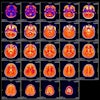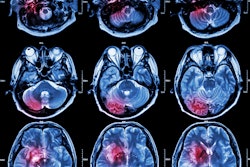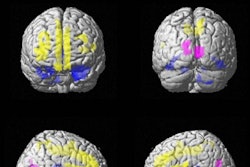Real-time functional MRI (fMRI) neurofeedback therapy may be more effective for treating chronic severe tinnitus than cognitive behavioral therapy (CBT), researchers have found.
The study results are good news for those who suffer from the condition, wrote a group led by Nicolas Gninenko, PhD, of École Polytechnique Fédérale de Lausanne in Switzerland. The team's findings were published February 13 in Radiology.
"[We found that] real-time fMRI neurofeedback therapy led to a greater reduction in tinnitus distress than the current standard treatment of CBT," the investigators reported.
Chronic tinnitus is common, but "no evidence-based universal cure exists and currently available therapeutic options are of limited efficacy or inconsistent benefit," the team noted. CBT is the standard treatment for the condition, with the aim of decreasing distress and debilitating impact caused by tinnitus by having patients focus on "positive and realistic thoughts," but it doesn't address tinnitus' "auditory percept" – that is, what previous research has suggested is excessive activation in the auditory cortex.
That's where real-time, functional MRI (fMRI) neurofeedback could come in. The technique could help patients "learn voluntary downregulation of auditory cortex activation … and … improve chronic tinnitus," the group noted.
Gninenko and colleagues conducted a study that included 43 individuals with chronic severe tinnitus who were randomized between December 2017 to December 2021 to receive either CBT for 10 weekly group sessions (22 participants) or individual real-time fMRI neurofeedback for 15 weekly sessions (21 participants).
The team assessed any changes in study participants' experience of the disorder using the change in the Tinnitus Handicap Inventory (THI) score (range, 0 to 100; lower scores indicate improvement) from baseline to six or 12 months. Secondary outcomes consisted of patient responses to four quality-of-life questionnaires (Beck Depression Inventory, Pittsburgh Sleep Quality Index, State-Trait Anxiety Inventory, and World Health Organization Disability Assessment Schedule).
The functional MRI treatment group showed more improvement in patients' experience of chronic severe tinnitus, the researchers reported.
| Comparison of functional MRI tinnitus treatment compared with CBT | ||||
|---|---|---|---|---|
| Measure | CBT | fMRI | ||
| Mean score change, Tinnitus Handicap Inventory score (score decreases indicate improvement) |
||||
| At 6 months after baseline | -12 points | -28 points | ||
| At 12 months after baseline | -4 points | -30 points | ||
| Quality of life changes (score increases indicate improvement) | ||||
| Improved sleep, 1-month after baseline | 7 points | 9 points | ||
| Decreased anxiety, 1-month after baseline | 40 points | 44 points | ||
| Improved depression, 6-months after baseline | 7 points | 14 points | ||
| Improved general functioning, 6-months after baseline | 13 points | 25 points | ||
The results are encouraging, but more research is needed, according to the authors.
"Despite the promising results of this study, fMRI neurofeedback is limited by its technical complexity and associated costs," they concluded. "However, given the significant morbidity of severe chronic tinnitus and the absence of efficient therapeutic options today, there may be a place for fMRI neurofeedback therapy for highly affected patients."
The complete study can be found here.




















